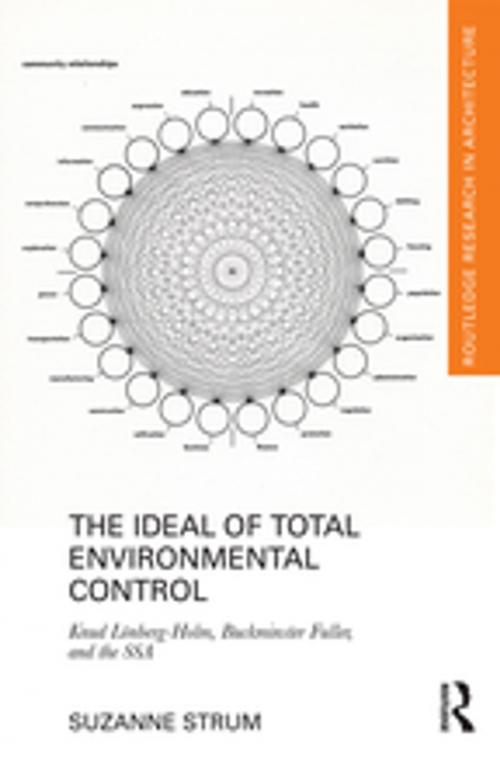The Ideal of Total Environmental Control
Knud Lönberg-Holm, Buckminster Fuller, and the SSA
Nonfiction, Art & Architecture, Architecture, History| Author: | Suzanne Strum | ISBN: | 9781351787246 |
| Publisher: | Taylor and Francis | Publication: | October 19, 2017 |
| Imprint: | Routledge | Language: | English |
| Author: | Suzanne Strum |
| ISBN: | 9781351787246 |
| Publisher: | Taylor and Francis |
| Publication: | October 19, 2017 |
| Imprint: | Routledge |
| Language: | English |
**Finalist for the Thought and Criticism category of the FAD Awards 2019**
This book traces the ideal of total environmental control through the intellectual and geographic journey of Knud Lönberg- Holm, a forgotten Danish architect who promoted a unique systemic, cybernetic, and ecological vision of architecture in the 1930s. A pioneering figure of the new objectivity and international constructivism in Germany in 1922 and a celebrated peer of radical figures in De Stijl, the Bauhaus, and Russian constructivism, when he emigrated to Detroit in 1923 he introduced the vanguard theory of productivism through his photography, essays, designs, and pedagogy. By following Lönberg- Holm’s ongoing matrix of relations until the postwar era with the European vanguards in CIAM and former members of the Structural Study Associates (SSA), especially Fuller, Frederick Kiesler, and C. Theodore Larson, this study shows how their definition of building as a form of environmental control anticipated the contemporary disciplines of industrial ecology, industrial metabolism, and energy accounting.
**Finalist for the Thought and Criticism category of the FAD Awards 2019**
This book traces the ideal of total environmental control through the intellectual and geographic journey of Knud Lönberg- Holm, a forgotten Danish architect who promoted a unique systemic, cybernetic, and ecological vision of architecture in the 1930s. A pioneering figure of the new objectivity and international constructivism in Germany in 1922 and a celebrated peer of radical figures in De Stijl, the Bauhaus, and Russian constructivism, when he emigrated to Detroit in 1923 he introduced the vanguard theory of productivism through his photography, essays, designs, and pedagogy. By following Lönberg- Holm’s ongoing matrix of relations until the postwar era with the European vanguards in CIAM and former members of the Structural Study Associates (SSA), especially Fuller, Frederick Kiesler, and C. Theodore Larson, this study shows how their definition of building as a form of environmental control anticipated the contemporary disciplines of industrial ecology, industrial metabolism, and energy accounting.















